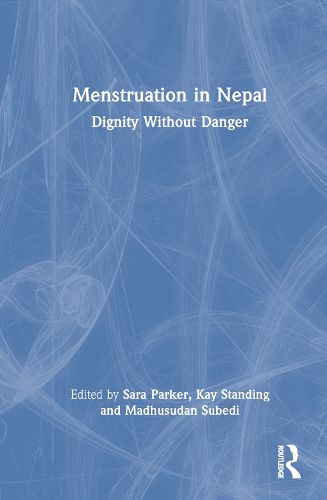Readings Newsletter
Become a Readings Member to make your shopping experience even easier.
Sign in or sign up for free!
You’re not far away from qualifying for FREE standard shipping within Australia
You’ve qualified for FREE standard shipping within Australia
The cart is loading…






This book examines the complexities of menstrual beliefs and practices in Nepal. Taking an interdisciplinary and intersectional approach, it explores and promotes the rights of women, girls, and people who menstruate to a dignified and healthy menstruation.
The volume
collates current research in Nepal from local academics, early career researchers, and the Dignity Without Danger research project;
provides a more nuanced understanding of the complex stigmas and taboos that surround menstruation;
highlights the importance of rethinking ideas of religion, gender, menstruation, stigma and taboos, cultural practises, and discrimination;
proposes a counter-narrative that places sociological studies at the heart of the discussion surrounding menstruation; and
calls for more collaborative action research to strengthen the links between academia and activism across disciplines.
An authoritative contribution, the book will be of interest to scholars and researchers of gender studies, public health, sociology, human rights, South Asian studies, medical sociology, cultural studies, and social medicine, particularly for those concerned with Nepal.
$9.00 standard shipping within Australia
FREE standard shipping within Australia for orders over $100.00
Express & International shipping calculated at checkout
This book examines the complexities of menstrual beliefs and practices in Nepal. Taking an interdisciplinary and intersectional approach, it explores and promotes the rights of women, girls, and people who menstruate to a dignified and healthy menstruation.
The volume
collates current research in Nepal from local academics, early career researchers, and the Dignity Without Danger research project;
provides a more nuanced understanding of the complex stigmas and taboos that surround menstruation;
highlights the importance of rethinking ideas of religion, gender, menstruation, stigma and taboos, cultural practises, and discrimination;
proposes a counter-narrative that places sociological studies at the heart of the discussion surrounding menstruation; and
calls for more collaborative action research to strengthen the links between academia and activism across disciplines.
An authoritative contribution, the book will be of interest to scholars and researchers of gender studies, public health, sociology, human rights, South Asian studies, medical sociology, cultural studies, and social medicine, particularly for those concerned with Nepal.